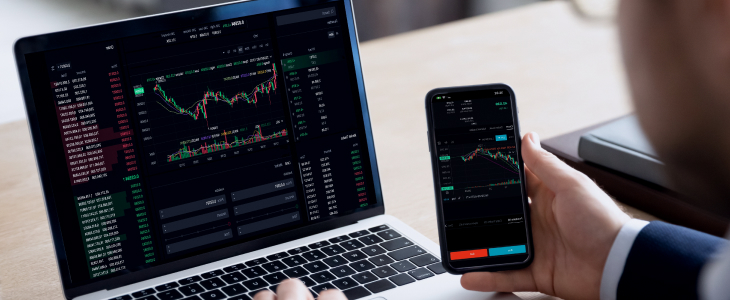Understanding Forex Trading Signals A Comprehensive Guide 1719693844

Understanding Forex Trading Signals: A Comprehensive Guide
In the fast-paced world of forex trading, the right signals can make a significant difference in the trading outcomes. Whether you are a beginner or a seasoned trader, forex trading signals Best South African Brokers can help you choose the correct tools and resources to streamline your trading strategy. This article aims to delve into the concept of forex trading signals, their types, how they work, and tips for effectively using them in your trading endeavors.
What are Forex Trading Signals?
Forex trading signals are indications or alerts that help traders make informed decisions in the foreign exchange market. These signals can be generated based on technical analysis, fundamental analysis, or a combination of both, providing guidance on when to buy or sell a currency pair. They are particularly useful in helping traders to identify profitable trading opportunities without extensively analyzing the market on their own.
Types of Forex Trading Signals
There are primarily two types of forex trading signals: manual signals and automated signals.
1. Manual Trading Signals
Manual signals are generated by experienced traders or analysts who interpret market data using various analytical tools. These signals often come in the form of recommendations, such as “buy EUR/USD at 1.1000” or “sell GBP/JPY at 150.00.” Traders who prefer manual signals typically rely on their own judgment and experience to confirm or act on these suggestions.
2. Automated Trading Signals

Automated signals come from trading platforms or software that analyze market trends and conditions using algorithms. These systems generate trade alerts based on predefined criteria, allowing traders to react quickly to market changes. Utilizing automated signals can be particularly beneficial for those who may not have the time to analyze the market continuously, as well as for less experienced traders in need of guidance.
How Forex Trading Signals Work
Forex trading signals work by conveying specific trade information to users, including entry and exit points, stop-loss levels, and take-profit targets. Here’s how they typically function:
- Signal Generation: Signals are produced through a combination of market analysis, which may include chart patterns, economic news, and historical data.
- Delivery: Once generated, these signals are delivered to traders via various methods, including email, SMS, or directly through trading platforms.
- Execution: Traders then have the option to manually execute the trade based on the signal or use automated trading methods to place trades automatically.
Benefits of Using Forex Trading Signals
Forex trading signals offer several advantages, including:
- Time-Saving: By using signals, traders can save considerable time on market research and analysis.
- Accessibility to Information: Signals provide access to insights that traders might not be able to analyze independently.
- Risk Management: Many signals include risk management strategies, such as suggested stop-loss and take-profit levels.
- Education: Following and analyzing signals can help traders improve their understanding of market dynamics and trading strategies.

Choosing the Right Forex Trading Signals
When selecting forex trading signals, consider the following factors:
- Reputation of the Signal Provider: Research the provider’s history and customer feedback to ensure they are reliable.
- Accuracy and Performance History: Look for documented performance and accuracy rates of the signals over time.
- Costs: Some signals are free, while others require subscription fees. Evaluate your budget and choose accordingly.
- Compatibility: Ensure that the signals are compatible with your trading platform and style.
Tips for Effectively Using Forex Trading Signals
To maximize the benefits of forex trading signals, consider the following tips:
- Combine Signals with Your Analysis: Use signals as one tool within a broader trading strategy that includes your technical and fundamental analysis.
- Stay Informed: Keep up with market news and economic events that could impact currency pairs and the effectiveness of the signals.
- Practice Risk Management: Always use stop-loss orders and only invest what you can afford to lose.
- Review Your Trades: Analyze the outcomes of the trades executed based on the signals to learn and improve your strategy over time.
Conclusion
Forex trading signals can be invaluable in making informed trading decisions and enhancing overall trading performance. Whether you prefer manual or automated options, understanding how these signals work and how to leverage them effectively can set you on a path toward more profitable trading. By incorporating reliable signals into your strategy and continuously improving your skills, you can navigate the forex market with greater confidence and success.
